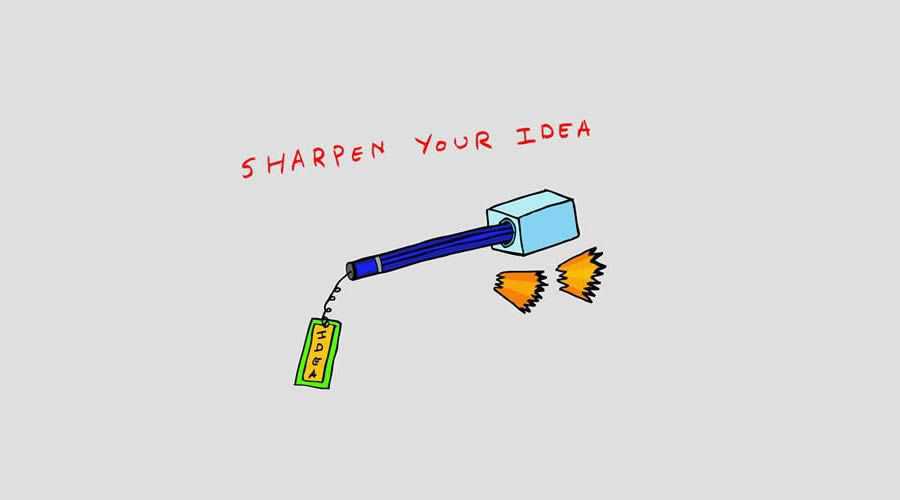Testing Your Marketing Efforts as a Freelancer Designer
In today’s freelancing climate, one of the best things you can do in terms of marketing yourself is to think in what I like to call “Test Terms.”
What does this mean? When a food company is developing a new product to release into the market, they don’t simply travel in a straight line from recipe to manufacturing to stocking the shelves at the grocery store. What happens is they perform a series of tests, which allow them to tweak their product until it gets just the right kind of response they’re looking for.
As a designer, it’s eminently possible to plan out a system that allows you to do the same thing, with similar results. However, many people remain stuck on one method of promotion, believing they’re too busy working to devote too much time to marketing themselves.
But the sad paradox of that belief is that, by not adjusting the way they market themselves, these freelance designers will always be too busy scraping by. They’re not getting the exposure they need to be choosier about the types of jobs they can take on, because the only jobs available are the ones that limited exposure gets them.
Everyone Tests Everything
One of the best ways to test consumers’ reactions to new food products is to get their direct feedback. Starting with just one local area, a company will test out a variety of different approaches to everything about the product. And I mean everything.
Do people in this small town like the taste of this new product, or do they hate it? If they hate it, it’s back to the test kitchens to improve the recipe. Are they repelled by the packaging?
Get that designer back in here – time to revise! Are the ads falling flat? Well, you get the idea.
Every tiny detail of this new product gets tested and re-tested, adjusted and refined wherever needed. After they’ve made enough improvements that people are now responding well to the product, it’s time to take it to a new area. This process gets repeated again and again until there’s a hugely positive response and people are stockpiling the new food item like they’re preparing for Armageddon.
A similar process happens, by the way, in the movie business, the government (think road signs or jury duty summonses aren’t tested? Think again), and other consumer industries like toys and games.
Testing is a proven strategy to improving a product’s chances of success, and as a designer, you can very easily start taking advantage of some of these sophisticated testing methods to place yourself practically in the lap of your most desired clients. Of course, you can and do test your approaches to design, but trying out new ways of marketing is easier to implement in your regular schedule than you might think.

Sharpen Your Pencils
Start with your main marketing approach, which might be your website, your business card, your cover letter, or your resume. How well does this approach work for you? Are the clients beating down your door, or is something not quite working the way it’s supposed to?
If you regularly hand out business cards at networking events, are they completely up to date? Do they display the important information clearly? Are you giving them to the right people? That last one is an important detail that many creative freelancers miss.
Business cards are practically useless if you don’t use them properly. At a networking event, the people you typically end up chatting with aren’t people who can provide you with tons of high-quality work.
They’re people just like you – struggling entrepreneurs who need services on the cheap. It doesn’t mean you shouldn’t work with these people, but it’s important to keep in mind the overall value of a client when you’re passing out those expensive business cards.
How good of a return on your investment will you be getting? Test out handing your business card to a different sort of person than you ordinarily would, and see what type of response you get.
In a similar way, your website may or may not be bringing you the steady stream of work that it could be. You may be the most brilliant, multifaceted designer the world has ever seen, and yet if no one knows about your work, you might as well be invisible.
The real key to getting better quality clients is not to put as much of your work “out there” as you possibly can. It’s making sure that the work you’ve done is being seen by the maximum number of eyeballs.
In the design world, the best way to do this, in my opinion, is by doing a personal side project that you really love and are passionate about.

The Gold Standard Of Eating
It turns out that as a designer operating a business as a freelancer, you should be adjusting everything you do to market yourself – all the time.
What do I mean by adjusting? In many restaurants, well before the rush of customers comes in, chefs create something called a Gold Standard, a single plate that sets the, well, standard for all the plates the kitchen will produce for that day.
It’s such an important part of the culinary process that the plates used in most restaurants – the ones you eat your main course on – are known as Gold Standard Plates.
The original Gold Standard is a test plate – any changes to the dish are tried out there first. If something is off about the flavor, the ingredients, or the arrangement of the items, the Gold Standard will be the laboratory where those things can be tweaked.
As a designer, incorporating a similar philosophy will be helpful in streamlining your marketing process. Creating your own “Gold Standard” of promotion will allow you to make quick adjustments locally, to one portion of your marketing campaign, before you roll out those changes to everything else.
Whether it’s your website’s analytics, your business card, or your resume, zoom in on one single marketing material and find out what works and what doesn’t.
Usually the information you learn is transferable to other parts of your marketing package, and you may even discover that one or more of your marketing materials are unnecessary.
You definitely need to have a website if you design them for a living, but what about business cards? A CV? Social media? How well are these things really working to directly deliver you the clients you want?
Different types of clients care about different things. Maybe your clients don’t care so much about your resume, but they would really love to read your personal blog or Twitter updates. Other clients might be the exact opposite – it’s essential to know your market and be able to provide them the proof they’re looking for that tells them you’re the designer for the job.